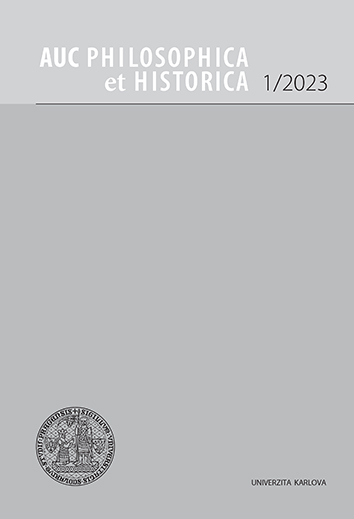AUC Philosophica et Historica (Acta Universitatis Carolinae Philosophica et Historica) is a multidisciplinary academic journal focused on the humanities with more than 50 years of tradition.
The journal is indexed in CEEOL, DOAJ, and EBSCO.
AUC PHILOSOPHICA ET HISTORICA, Vol 1968 No 4 (1968), 59–70
O pojmu sociální role
[The Social Role Concept]
Eduard Urbánek
DOI: https://doi.org/10.14712/24647055.2018.166
published online: 16. 01. 2018
abstract
An essential condition of the progress of sociology in Czechoslovakia is that it should draw on the results achieved in other countries, especially in the USA, France, Germany and Great Britain. A critical approach is, of course, required. Many of the concepts and categories current in sociology in the western countries are employed variously, carrying shades of meaning that are often quite contradictory. One of the much-used categories of contemporary sociology and social psychology that has been adopted in Czechoslovakia is that of the social role. This concept – a product of recent decades – provides a classic example of ambiguity, multiplicity of meanings and disunity in the use of sociological categories. Among the most disputable is the concept that reduces man in modern society to a sum of roles. The idea of role is open to many meanings. Employment of the social role category and the concept of man as a sum of roles is appropriate only in a restricted field, especially where stress is placed in the study of personality and the socialisation of personality on adaption, discipline and conformity. But man is something more than a sum of roles. To many of his activities the concept is applicable purely in a metaphorical sense; the very system of norms and values in society is not always homogeneous and does not advance clear-cut demands and expectations. Man has the opportunity to choose, resist, oppose, he may not necessarily adopt the expected modes of behaviour. The category of role, the concept of man as an actor playing a part and of history as a drama can, however, serve critically-minded philosophers and sociologists as a basis for elucidating the substance of the historical process; it can help to explain why and when man is actually an actor, bearer of a role, or even a puppet and. why certain stages of history are truly tragedies, comedies and sometimes burlesques and farces. This concept can be traced from German classical philosophy, we find it used by Marx and by the critically-inclined among present-day sociologists and philosophers (c. g. Lefebvre, Berger).
